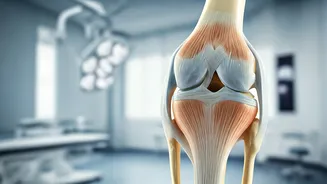Discover the art of self-care, Indian style. Regular physical check-ins are key to a healthier, happier you. Read on!
In today's fast-paced jeevan, where we are always running from one thing to another,
it's easy to forget about the most important person: yourself. We get so caught up in work, family responsibilities, and social commitments that we often neglect our own well-being.

But think about it, can a car run without fuel? Similarly, how can you effectively handle your responsibilities if you are not physically and mentally fit? That's where regular physical check-ins come in.
These simple practices are a form of self-care, ensuring you stay healthy, happy, and energized to tackle anything life throws your way.
Regular health check-ins empower you to monitor and address potential issues early
Think of physical check-ins as your personal health audit. It's not just about visiting the doctor when you are feeling unwell; it's about proactively monitoring your health to catch potential problems early.

This could involve anything from tracking your weight and blood pressure to paying attention to changes in your sleep patterns or energy levels. The idea is to become more attuned to your body's signals, so you can address any concerns before they develop into serious issues.
Regular check-ins can empower you to make informed decisions about your health and well-being.
By understanding your body better, you can customize your lifestyle to suit your needs, whether it's adjusting your eating habits, increasing your physical activity, or seeking professional help when needed. This awareness is key to maintaining a healthy and fulfilling life.
Manage stress with exercise, mindfulness, and self-care for well-being
One of the biggest benefits of physical check-ins is stress management. Stress is a common part of modern life, but chronic stress can take a toll on your physical and mental health. Regular exercise, mindfulness, and relaxation techniques can help you manage stress more effectively.

Physical activity releases endorphins, which have mood-boosting effects, while mindfulness practices can help you stay grounded in the present moment, reducing anxiety and worries.
By incorporating these practices into your routine, you can build resilience to stress and improve your overall well-being. Remember, self-care is not selfish; it's essential for your physical and mental health.
When you prioritize your well-being, you are better equipped to handle challenges, nurture relationships, and pursue your goals with energy and enthusiasm. Taking small steps to care for yourself can have a profound impact on your overall quality of life.
Incorporate physical check-ins for better health and immunity
Incorporating physical check-ins into your daily routine doesn't have to be complicated or time-consuming. Start with small, manageable steps, such as setting aside 15-20 minutes each day for exercise, practicing deep breathing techniques, or simply taking a few moments to reflect on your day.

You can also track your progress using a journal or a smartphone app to stay motivated and accountable. Remember, consistency is key. The more consistently you practice these check-ins, the more benefits you will reap. Don't get disheartened if you miss a day or two.
Just get back on track as soon as possible. The goal is to make self-care a sustainable part of your lifestyle, not a temporary fix. So, think of physical check-ins as a way to build a stronger immunity towards chronic illness.
Tips for a healthy start: schedule check-ups, eat well, hydrate, sleep enough
Now, let's get into some practical tips for starting your physical check-in journey. First, schedule regular doctor appointments for check-ups and screenings. This is especially important if you have a family history of certain health conditions. Secondly, pay attention to your diet.
Focus on eating a balanced diet rich in fruits, vegetables, whole grains, and lean protein. Limit your intake of processed foods, sugary drinks, and unhealthy fats. Third, stay hydrated by drinking plenty of water throughout the day.
Dehydration can lead to fatigue, headaches, and other health problems. Fourth, get enough sleep. Aim for 7-8 hours of quality sleep each night. Sleep deprivation can weaken your immune system and increase your risk of chronic diseases.
Regularly exercise, prioritize self-care for well-being and health
Make sure you are regularly exercising. Find activities that you enjoy and that fit into your lifestyle, whether it's walking, jogging, swimming, yoga, or dancing. Sixth, practice mindfulness and relaxation techniques.
Deep breathing, meditation, and yoga can help you reduce stress and improve your overall well-being. It's important to remember that self-care is a journey, not a destination. Be patient with yourself, celebrate your progress, and adjust your approach as needed.
The most important thing is to prioritize your health and well-being and make self-care a regular part of your life. Take charge of your life, and make sure your health, joy, and long life are top priority!
AI Generated Content. Glance/InMobi shall have no liability for the content











